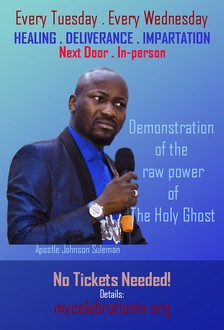Lessons from Joseph The Dreamer
Understanding man’s ability to affect or effect destiny as we mature in how we allow supernatural intervention on our path. Envy can cause symbols of fruitfulness to suffer attack by man’s ability to affect rather than effect prophecy in response to celestial motivations.
Israel’s Path to Goshen
When we talk about Joseph in the Bible, the hashtags that immediately come to mind include phrases like; the dreamer and his coat of many colors or the Jew that became the prime minister of Egypt overnight, or the dreamer/interpreter who became lucky, and similar hashtags. The life of Joseph is a spiritual emblem of fruitfulness attacked by man’s ability to affect rather than effect prophecy.
Hardly, do we remember that Joseph is the ancestor of Joshua (yes, the successor of Moses), Israel’s judges including Gideon, Deborah, and Jephthah as well as Prophet Samuel. Great men, and a lady whose remarkable accomplishments must be told for the Bible to be complete. Considering the contributions of these people to their nation and the lessons of history left for us, it would have been unimaginable loss had Joseph’s dream been truly sabotaged. Satan does not play. Look at how many attempts he made to get rid of that dream.
Deborah was a dutiful housewife, yet she receives credit for exemplary bravery when her leadership credentials were challenged in times of war. Prophet Samuel is the only prophet the Bible accolades as having one hundred percent prophetic accuracy. Every prophecy that he gave came to pass. Samuel was a prophet to Israel, the last of the judges who led Israel before they chose to have kings. A mover of another great transformation that linked royalty spiritual office. These people are all descendants of Joseph, powerful fruits contributed by the destiny of Joseph.
It is also common to talk about Jacob’s switching of his hands when it was time to bless Ephraim and Manasseh. Yet, at that event were significant incidents that established history. The place of the sage, Jacob, Joseph’s father, as the progenitor, and a prophet of God’s people.
Clearly, the dream pointed Joseph out as the man with a destiny. Yet, no man understood the reason why God had given that dream so much impact. The true revelation of Joseph’s destiny from the dream was to deliver his people rather than rule his brothers.
Deviants and Destiny: The Challenge For Leadership Development
Unfortunately, evil played the usual game with man’s myopic vision, making them to interpret the dream to mean a rulership of Jacob’s household. That rulership over Jacob himself by Joseph, happened eventually in Goshen. Clearly, even Jacob placed Joseph on the watch list while Joseph was still young. Joseph’s must have been displaying certain characters and manifestation of leadership traits. I suspect that the dream may have been replicated in various other forms for it have become noteworthy. The coat of many colors is certainly a unique recognition as a gift to confirm Jacob. It probably also confirms a uniqueness about Joseph. It however instigated the envy of his seniors. Spiritually, it speaks to the many traits including leadership skills to be seen in the future of this leader of the world.
Not surprisingly therefore, the dream and the coat of many colors became the agent provocateur for satanic attempts to obliterate Joseph’s destiny. In Joseph’s case, his painful experiences probably constituted a deviation in God’s plan to prepare Joseph for his true role in destiny, decades ahead (Genesis 50:20). Joseph eventually became very prosperous, the right-hand man of Pharaoh, the ruler of the world as it were at the time. He was so fruitful as to become the ancestor of two tribes in Israel, but more importantly, to provide Goshen for his entire nation where they multiplied rather than die of starvation in Israel. They missed the prophecy about the need to prepare Joseph for his future through envy.
Fulfilling Destiny in A Strange Land
Spiritual Twists on the path of Joseph’s Destiny
Nothing in the story gave us a hint that Joseph’s rulership will be of a strange nation or people. I suspect that his brothers will have been more circumspect before trading him off to strangers if they had this revelation. To the contrary, the idea to sell him off to a strange land was probably to get rid of any pathway to local rulership in their calculation. It is rare for kings to reign in foreign lands, at least in human judgement. Joseph’s story has parallels with Jesus. The king of The Jews that became the king of the world. His gospel being shared all over the world today points every eye towards Jerusalem. Therefore, the short-sightedness of human calculations, and inability to grasp the understanding the spiritual perspective of prophecies pushes us to make mistakes that have important bearing for destiny.
There are other comparable themes of salvation and fruitfulness between Jesus and Joseph that Satan tried to abort. For example, the bible quotes, “So Joseph settled his father and his brothers in Egypt and gave them property in the best part of the land … “(Genesis 47:11). Satan understood that this moment will likely come, and did his best to avert the future salvation of Israel from impending famine as revealed to us by Jesus, “The thief cometh not, but for to steal, and to kill, and to destroy: ...” (John 10:10). Therefore, when Jacob tearfully said, “… I had not thought to see thy face: and, lo, God hath shewed me also thy seed” (Genesis 48:11). Jacob was confirming that Satan’s agenda had failed completely. Satan failed with the attempt by Joseph’s brothers to kill him, and to eliminate the destined great role of Joseph, and his descendants (his seed) in Israel.
Satan also failed woefully in his diversionary tactics using Potiphar’s wife, and similar experiences through jail and other posts along the route to the prime minister’s office. Ordinarily, Joseph will not have married an Egyptian, but he had to subdue his personal wishes for God’s grand agenda. He was rewarded with entire tribes of Israel, and great leaders whose names are chiseled in the annals of history. Israeli history honors him as a ‘court Jew’ recognizing him because the salvation and redemption of his people was primary in his calculations.
The spiritual perspective of Joseph’s challenge by Satan can be gleaned from this story rarely played in his life story. It is important to understand the spiritual significance of being sent to a foreign land as a diversionary tactic of the devil. The comparison of the dry pit versus the spring-watered bough encodes the fruitfulness challenge for Joseph as the prophet reveals in Genesis 49:22.
In Genesis 37, we are told about how Joseph’s brothers hid him in a dry pit while they ate on the slab covering him in the pit. There was a lot of drama as two brothers were afraid of shedding the blood of the innocent, how they each independently carved out strategies to save the life of Joseph, and they tried to mockup all the spills that accompanied their confusing individual strategies. These two brothers were probably afraid of committing murder and having their brothers’ blood on their hands. Each plotted his own strategy that was different from the group agenda. Yet, they all needed to present a common story when they get back home. But how tormenting was the possibility of the dream for them to contemplate murder as the only way to stop the idea. Joseph must have consistently demonstrated some indicators in his character.
They were comfortable while he suffered in a dry pit. They locked him up in bondage, strategizing on executing his death. The delay created the path to the ultimate diversion. Satan lost out, but an apparent distraction to Joseph’s ambitions was born.
Going back to Genesis 49:22, “Joseph is a fruitful bough, even a fruitful bough by a well; whose branches run over the wall.” To explain fruitfulness better, let us review Psalm 1: 2-3 that says, “… he shall be like a tree planted by the rivers of water, that bringeth forth his fruit in his season; his leaf also shall not wither; and whatsoever he doeth shall prosper.”
Joseph’s destiny was to be planted by a spring that guarantees limitless fruitfulness. However, he was diverted into a dry pit. These roots make spiritual revelations important. God’s plan for Joseph versus Satan’s plan. More than the prophets and judges, or even the tribes, the achievements of Joseph marks him out as the only human whose life and destiny have ever been compared to that of Jesus Christ himself. In other words, Joseph was God’s plant for the salvation of God’s people when they needed protection from imminent famine in their land. Goshen can only but be described as evidence of Joseph’s fruitfulness. A branch or a twig of the bough. Afterall, Egypt fed the world at the time through the management expertise of Joseph.
The scriptures tell us that their fathers loved them both (God and Jacob) dearly. they were shepherds caring to their father’s sheep. Their fathers sent them to their brethren (the Jews and Joseph’s brothers), who harbor hatred for them. Strangers plotted to harm them. They were subjected to temptation, and both were taken to Egypt. Their robes were taken from them. Jesus and Joseph were sold for the price of a slave, bound in chains after facing false allegations. They both found themselves among two other criminals, one of whom was saved while the other was condemned. They were both thirty years old when their ministries became recognized publicly. Glory came after much suffering, yet they forgave the agents who executed pain on them. They both saved their nation and God turned what men used to hurt them to sacrifice of grace for their nations. Therefore, we can begin to imagine the why Satan tried to reverse by injecting the dry pit into Joseph’s destiny or fighting Jesus Christ so intently.
The ‘Make Sure’ Agent: True Deviants of Destiny
Clearly, Joseph empowered his enemies by voicing his dream to his family. The scriptures make us to understand that even his parents challenged his audacity. The dream must have put Jacob on the alert. Even though, he began to discern certain tendencies that gave credence to the validity of the vision, God did not totally open the meaning of the dream to him. The hatred from Joseph’s brothers probably intensified with time as they also began to discern signs of preferences and preferred lifestyle of Joseph. It is not impossible that the elements of leadership began to show in his lifestyle just as we saw with Samuel as an apprentice of Eli, and with David combining the skills of a musician, orator, and shepherd.
The true value of Christianity is an understanding that we are spiritual beings. We enjoy the physical abundance of our God, yet we recognize the ability of the spiritual beings to intervene in our plans and paths. When God promised the purpose of Jesus, we were told that His government will not end. The gospel continues to spread from domain to domain, despite that Jesus Christ himself physically left this world over 2000 years ago. That scripture concludes that verse by saying, “… The zeal of the Lord of hosts will perform this” (Isaiah 9:7). Therefore, God has clearly detailed certain spiritual messengers to enforce the ministry of evangelism and sustain the spread of the gospel. These are enablers that support the people determined to share the word of God. Even with the vision and spiritual help, we still face challenges. Prophets have always known in part. The Bible teaches us this wonderful lesson.
After the Pharisees succeeded in killing Jesus, they went back to Pilate to obtain permission to seal the tomb for at least three days (Matthew 27: 62-66). That way, they will not violate Sabbath rules and they can resume their watch after the Sabbath. The Pharisees and the chief priests were diligently keeping records of the movement and words of Jesus Christ. To make sure that Jesus did not escape while they kept the law, or that the guards be not overpowered by the disciples of Jesus Christ, they sealed His tomb. Joseph was dumped in the pit, but his brothers kept watch until they were able to sell him out. In their imagination, the threat of his rulership over them was eliminated.
The wise men described in Matthew chapter two were described as star gazers. They were not scientists but people who had the ability to understand the stars, and probably manipulate them. In any case, they were visitors of some significance for them to appear before Herod. Luckily, they were diverted from returning to Herod, in confirmation of Isaiah 9:7. Hence, we can talk about salvation by the blood of Jesus Christ today.
David was anointed King of Israel before his own brothers who had been earlier rejected the same day. That scenario can only generate envy and serious jealousy. And one can begin to decipher the challenge of the brothers of Joseph in earlier generations. These are negative vibes in which Satan flourishes. They catalyze distractions and manipulation by deviants to avert or thwart great destinies. Hence, we must all begin to challenge ourselves, and consider whether we have been victims of obstruction on our path to greatness: when where and how? More importantly, what has all or any of it got to do with man or God. How should we pray? Further, when emotions cause us to envy better achievers around us, we must allow that Holy Ghost intimation to turn around in supporting them by encouraging God’s will to prevail.
Mission Fields
People Saw It

Comments

Our Facebook page linked directly above is a very vibrant community where various topics get fleshed out. We also engage in discussions on Twitter and our LinkedIn group is growing beyond imaginations. Feel free to post your comments in your favorite format.













